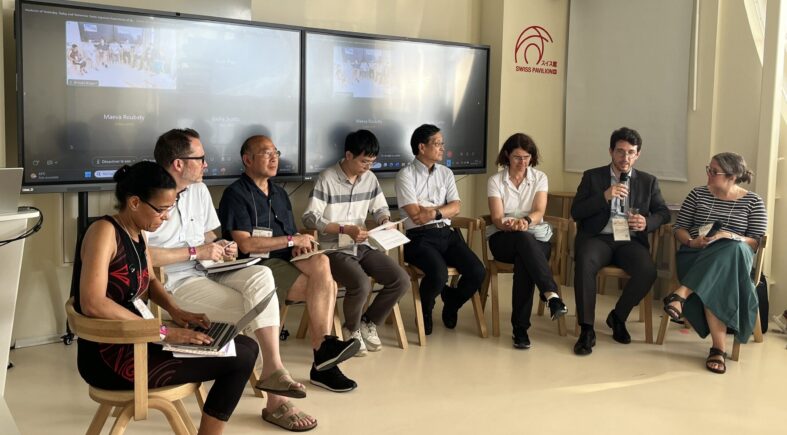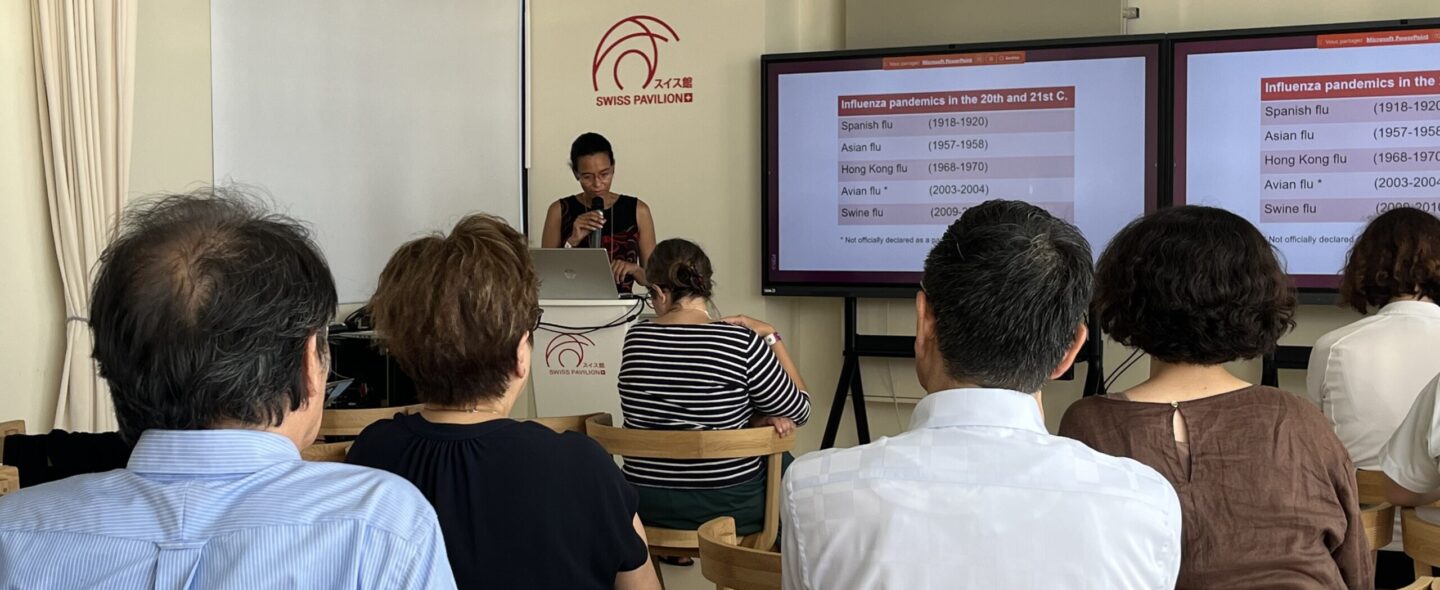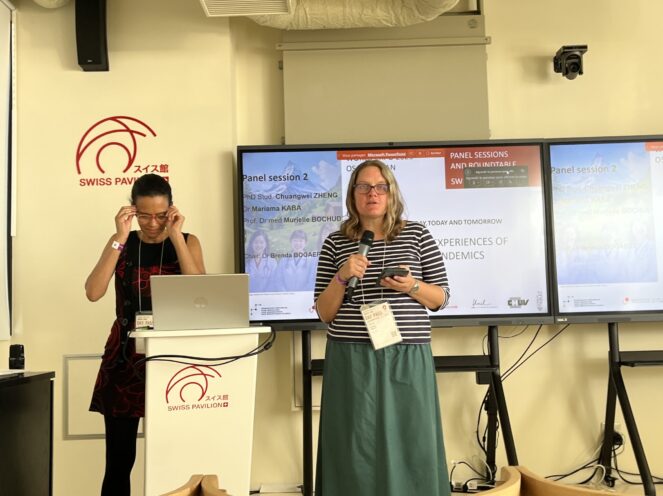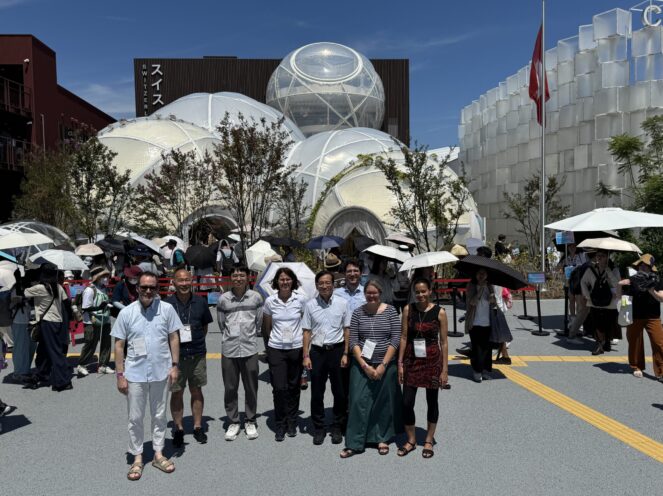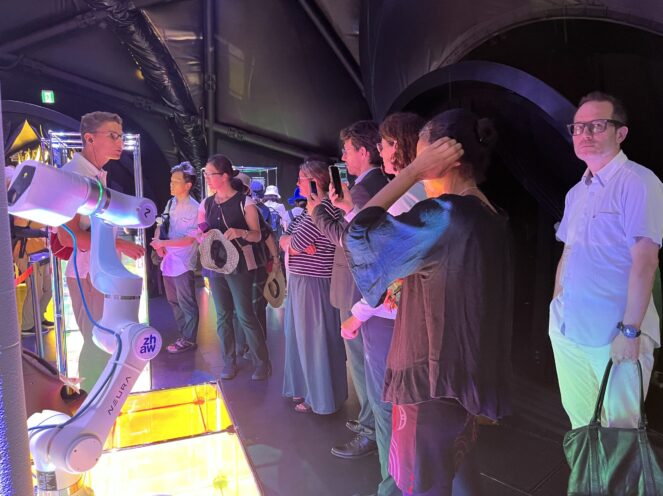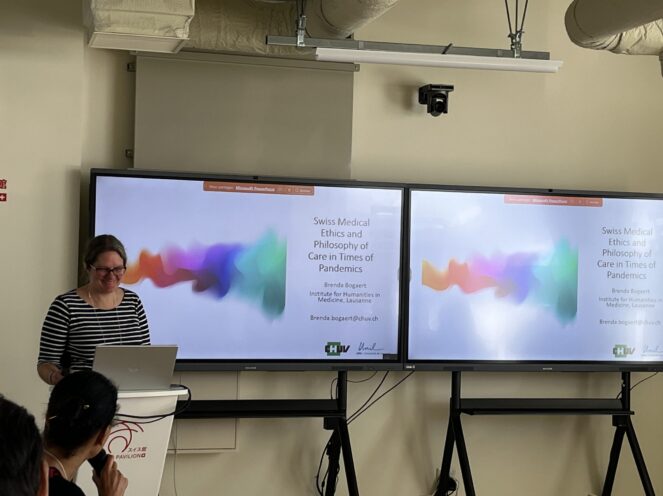The program began with individual presentations and continued with three panel discussions and a final roundtable, bringing together specialists from history, medicine, philosophy, public health, epidemiology, ethics, and the social sciences. From cases in Switzerland to cases such as the plague in Osaka the diverse experts, explored the interplay between environment, society, and disease. Discussions also touched on ethical themes such as the duty of care and integrity, illustrating how values and virtues shape responses to health crises and illustrating today’s struggles in healthcare systems.
Experts analyzed Switzerland’s response to COVID-19 alongside Japan’s experiences, highlighting differences in health-care systems, social and economic burdens, and the consequences of public health decisions. Concrete online platforms developed by medical specialists were also presented, showing how lessons from historical and recent epidemics can inform innovation, foster prosociality, and strengthen strategies for resilient global health.
The concluding panel brought together specialists from various fields, presenting diverse perspectives that invited the audience to reconsider familiar assumptions and think differently about key issues.
